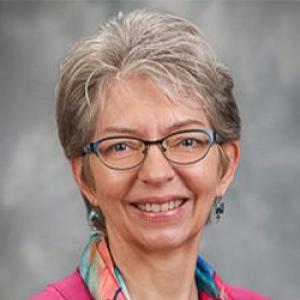
Barbara Hooper, PhD, OTR/L, FAOTA
Contact
Female, she/her/hers, white, ally, LGBTQIA+, first-generation, rural background, contemplative spirituality
Occupational roles: shared activities with my spouse, cycling, walking, hiking, playing with my dog and two cats, reading, writing, meditating, learning, camping
Dr. Hooper earned her Bachelor of Science in Occupational Therapy from the Medical College of Georgia, a Master of Science in Occupational Therapy from Western Michigan University, and her PhD in Higher, Adult & Lifelong Education at Michigan State University. She has published in the American Journal of Occupational Therapy, Medical Teacher, Advances in Medical Education, British Journal of Occupational Therapy, OTJR: Occupation, Participation & Health, Occupational Therapy in Health Care, and New Directions for Evaluation. She has also authored several book chapters and regularly consults with faculty groups nationally on designing curricula, courses, and teaching and learning activities for transformative learning.
Dr. Hooper’s excellence as an educator and influence as an educational scholar has been acknowledged through distinguished teaching and scholars awards and admission to the American Occupational Therapy Association’s Roster of Fellows.
Since 2008, Dr. Hooper has served as an Associate Professor and the Director for the Center for Occupational Therapy Education (COTE) at Colorado State University. She launched the Center to promote excellence in teaching effectiveness, curriculum design, and educational research in order to graduate occupational therapists who form community, create knowledge, use evidence and forge paths with clients toward satisfactory engagement in daily life.